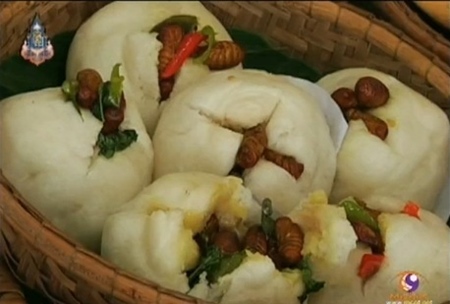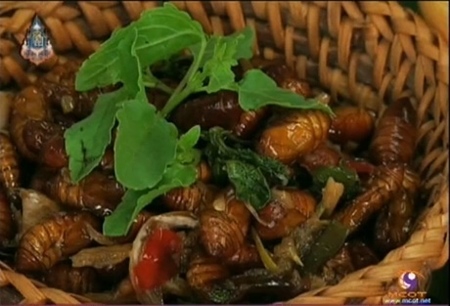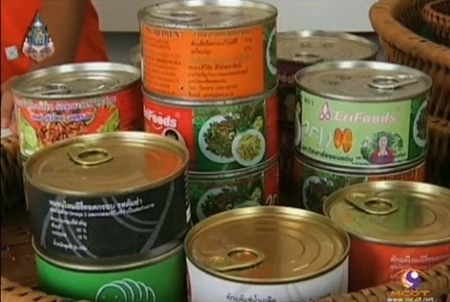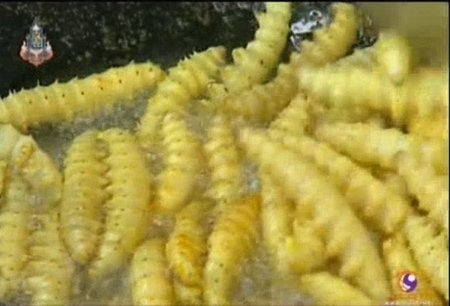In Thailand’s northeastern province of Khon Kaen, research on Eri silkworms by Khon Kaen University is showing local residents how to add value to their silkworm crops to earn higher income from them.
Soft and comfortable Eri silkworm silk is prized and is fashionable to wear, but now the worms are being selected as another Thai delicacy to be added to different menus.
In Thailanjd’s Northeast, Eri silkworms are commercially viable, popular and easy to farm, especially as they need only to be fed with cassava leaves.

Khon Kaen University’s Faculty of Agriculture has led the way in trying to develop the breed, collect, harvest, process and add value to the insects, ultimately aiming for Eri silkworms as an export specialty, particularly when it comes to being Thailand’s delicacy.
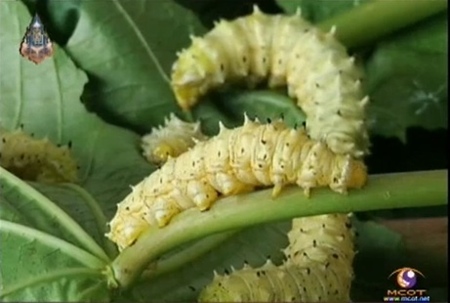
“We started by making deep-fried Eri silkworms, which we already registered as an intellectual property. We also have some other menus like steamed stuffed buns, steamed dumplings, as well as some other snacks and some special Thai menu items, which we have created; for example, Eri silkworms fried with basil leaves.
“We also have canned silkworms, produced by private companies, to be sold at 35 baht/can, or three cans/100 baht,” said Siwilai Sirimangkalarat, an associate professor in the Faculty of Agriculture.
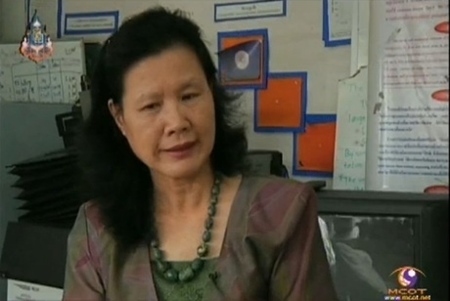
The size of Eri silkworms in their larval state is usually twice as large compared to local silkworms. They also have higher protein than the local bugs.
“What we found when we researched academic literature [around the world] is that Eri silkworms give high protein, ranking among the top five world insects for high protein, which is about 66 per cent, while local silkworms has 10 per cent less protein,” Prof Siwilai said.
A student at Khon Kaen University talked about an Eri silkworm food menu that he tried.

“This is an Eri cocoon steamed stuffed bun with a green curry flavour. It is tasty and delicious,” said student Pornthep Prempong.
That’s good news for bug eaters, for now they will be able to find such delicacies more easily in the market, as local farmers in the Northeast are becoming more and more interested in Eri silkworm farming. There is also a plan for private companies to export canned Eri silkworms abroad.
For farmers, selling such silkworms or the Eri cocoons already generate a considerable income. Eri silkworms are sold at Bt600/kg, and Eri at the larval state at Bt150/kg.
The United Nations Food and Agriculture Organization (FAO) said at least 527 different insects are eaten across 36 countries in Africa, while they are also eaten in 29 countries in Asia and 23 in the Americas. In Thailand alone, almost 200 different insect species are eaten, and vendors selling insects are a common sight throughout the country.
